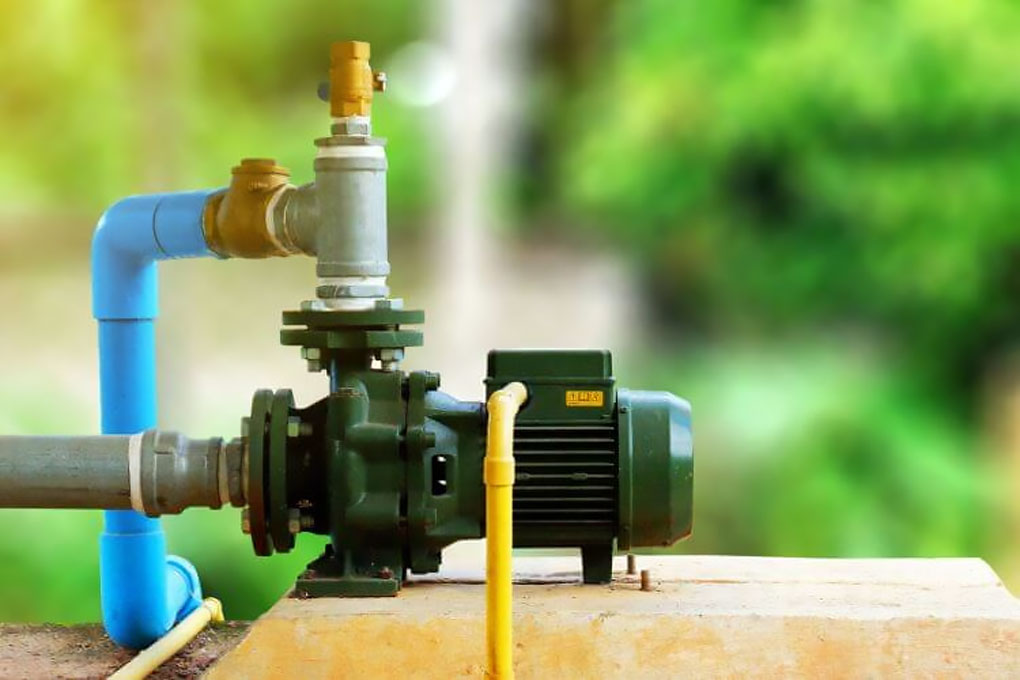Recognizing the Secret Elements of Effective Water Filtering Systems

Significance of Water Purification Equipment
Water filtration systems play an important duty in guaranteeing access to risk-free and clean drinking water by effectively removing pollutants and pollutants. These systems are vital in addressing the expanding issues over water high quality and the prospective wellness dangers connected with consuming contaminated water. By making use of numerous filtering systems such as reverse osmosis, turned on carbon, and UV sterilization, water purification systems can successfully remove damaging materials like germs, infections, hefty metals, and chemicals from the water supply.
In addition, water filtration systems aid to enhance the preference and odor of water by eliminating chlorine, debris, and various other toxins that can affect its quality. Well Pump Replacement. This improvement in water quality not just makes it a lot more palatable yet also motivates people to consume alcohol an appropriate amount of water daily, promoting better hydration and general health and wellness
Kinds Of Filtering Components

Physical filters are made to physically strain out contaminations from the water. These filters can be made from products like ceramic, carbon, and even sand, and they function by capturing bits bigger than the filter's pores as water passes through.
Chemical filters utilize numerous chemical processes to get rid of impurities from the water. Examples include activated carbon filters, which adsorb impurities, and reverse osmosis membrane layers, which make use of stress to separate impurities from the water.
Biological filters use living organisms like microorganisms or algae to damage down natural matter and pollutants in the water. These filters are usually utilized in wastewater treatment plants or all-natural water purification systems.
Understanding the various kinds of filtration parts is essential for choosing one of the most ideal water filtering system for particular filtration needs.
Feature of Debris Filters
Debris filters play a vital role in water filtering systems by successfully capturing solid particles suspended in the water. These filters are usually the initial discover this line of defense in a purification system, removing larger particles such as sand, silt, dust, and corrosion prior to the water relocates with finer filtration phases. By capturing these sediments, the filters prevent them from getting to downstream parts, therefore extending the lifespan and efficiency of the whole system.
The feature of debris filters is essential in maintaining water high quality and shielding delicate tools from damage brought on by particles. Additionally, by removing noticeable fragments, debris filters improve the quality and taste of the water. Routinely cleaning or replacing sediment filters is important to guarantee optimal performance. Disregarding this maintenance can lead to blocking, minimized water circulation, and jeopardized filtering efficiency. In general, debris filters are vital components that add significantly to the efficiency of water filtering systems.
Role of Activated Carbon Filters
Playing a crucial function in water filtration systems, activated carbon filters contribute in removing pollutants and pollutants from the water. These filters are developed to adsorb and trap a wide variety of toxins, including chlorine, unpredictable natural substances (VOCs), pesticides, and herbicides. The turned on carbon material has a large area, permitting for the effective trapping of contaminants with a process called adsorption. As water passes with the filter, the triggered carbon holds and draws in onto the pollutants, ensuring that the water that appears on the various other side is cleaner and more secure for intake.
Triggered carbon filters are extremely reliable at enhancing the preference and smell of water by decreasing chemicals that can impact its quality. Due Going Here to their versatility and dependability, triggered carbon filters are a crucial component in guaranteeing that water is purified to the greatest requirements prior to getting to consumers.
Understanding Reverse Osmosis Equipments
Reverse osmosis systems are sophisticated water filtering systems that employ an innovative process to remove contaminants and contaminations from alcohol consumption water. These systems function by using pressure to the water, forcing it with a semi-permeable membrane layer. This membrane serves as a barrier, enabling only distilled water molecules to go through, while obstructing bigger molecules such as minerals, chemicals, and other pollutants. Because of this, the water that appears on the other side is considerably cleaner and safer for consumption.
One trick advantage of reverse osmosis systems is their capability to get rid of a wide variety of contaminants, including heavy steels, dissolved solids, infections, and microorganisms. This makes them highly effective in boosting the general top quality and safety of drinking water. In addition, reverse osmosis systems are fairly low-maintenance and can be installed under the sink or in a central purification system, giving convenient access to clean water throughout the home. On the whole, comprehending how reverse osmosis systems work can aid individuals make notified decisions concerning their water purification demands.
Final Thought
Finally, over here efficient water purification systems are essential for guaranteeing tidy and risk-free alcohol consumption water. The key components of these systems include sediment filters, triggered carbon filters, and reverse osmosis systems. By understanding the feature and duty of each part, people can make enlightened decisions when picking a water purification system. It is important to focus on the high quality of water in order to advertise general health and wellness and health.
Water filtration systems play an important role in making sure access to tidy and risk-free drinking water by efficiently removing contaminations and impurities. By utilizing numerous purification devices such as reverse osmosis, turned on carbon, and UV sanitation, water filtration systems can effectively get rid of dangerous materials like microorganisms, viruses, heavy metals, and chemicals from the water supply.
Debris filters play a vital function in water filtering systems by effectively capturing solid particles suspended in the water (Water Softeners).Playing an important duty in water filtering systems, triggered carbon filters are critical in removing pollutants and pollutants from the water supply.Reverse osmosis systems are innovative water purification systems that employ an innovative process to remove pollutants and pollutants from drinking water